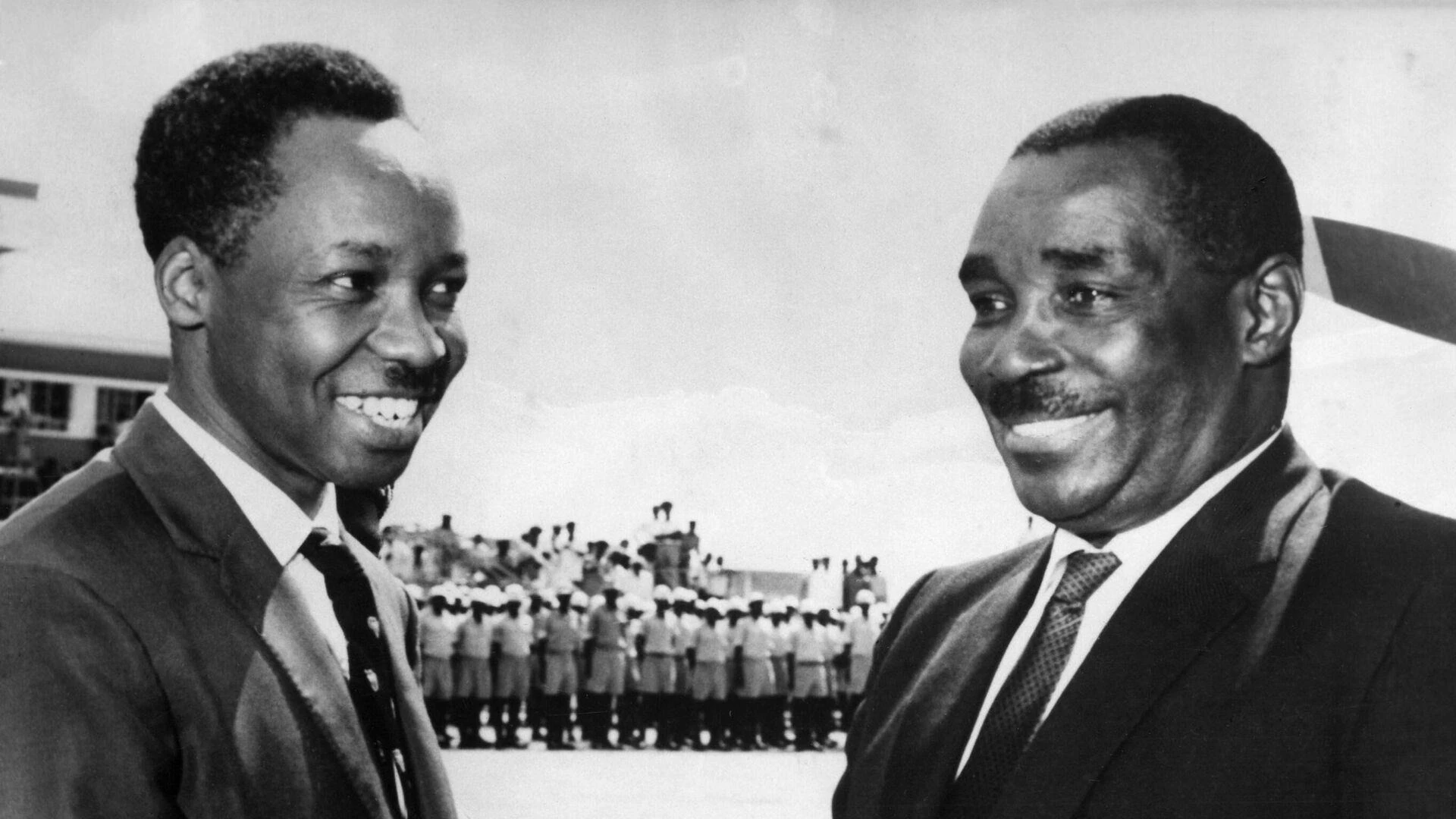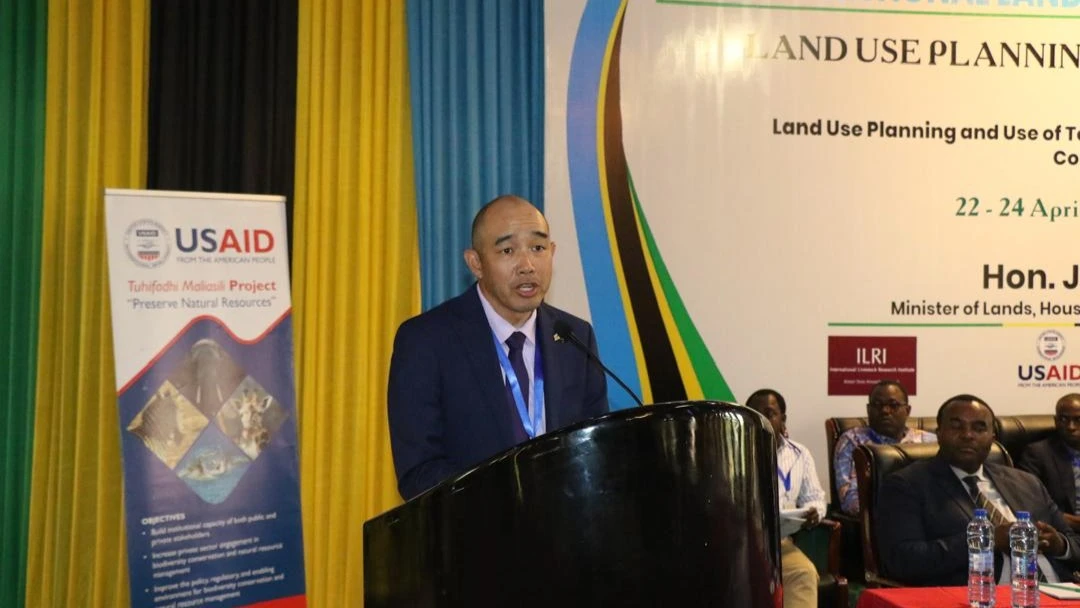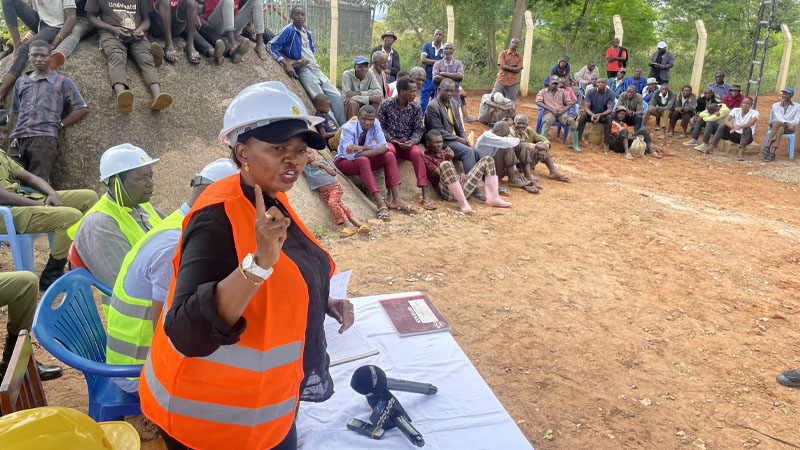Sheikh Abeid Karume's legacy of resilience, unity and progress

ON April 7, 2024, the 52nd anniversary of the assassination of Sheikh Abeid Amani Karume, the late First President of Zanzibar, was commemorated with solemn reverence at the Headquarters of the ruling Chama Cha Mapinduzi (CCM) in Kisiwandui, Zanzibar.
Standing in front of a meticulously sculpted statue of Sheikh Karume, flanked by the CCM office building and his final resting place, Tanzanians reflected on his enduring legacy and the significance of his contributions to the nation.
Throughout his remarkable life, Sheikh Karume played a pivotal role in shaping the political landscape of Zanzibar and Tanzania as a whole. Born in Unguja on August 4, 1905, Karume's early years were marked by adversity, losing his father at a young age and enduring economic hardships. Despite these challenges, he displayed resilience and determination, eventually finding employment as a sailor and traveling extensively across the globe.
Karume's experiences as a sailor broadened his horizons and instilled in him a deep sense of social justice and equality. Upon returning to Zanzibar, he became actively involved in political and social movements, founding organizations such as the Sailors' Union and the Afro-Shirazi Union. These initiatives aimed to empower marginalized communities and advocate for their rights in the face of colonial oppression.
Karume's crowning achievement came during the Zanzibar Revolution of January 1964, where he played a leading role in overthrowing the oppressive Sultanate regime and establishing a new era of independence and self-determination for the people of Zanzibar. This pivotal moment paved the way for the merger of Zanzibar and Tanganyika, leading to the formation of the United Republic of Tanzania, with Karume serving as its First Vice President.
Tragically, Karume's life was cut short on April 7, 1972, when he was assassinated under mysterious circumstances. Despite his untimely death, his legacy lives on in the hearts and minds of Tanzanians, who continue to honor his memory and uphold the principles of unity, equality, and progress that he championed throughout his life.
As Tanzania commemorates the 52nd anniversary of Sheikh Abeid Amani Karume's assassination, the nation reaffirms its commitment to building a brighter future guided by the values of justice, inclusivity, and solidarity that he embodied. Through collective action and steadfast determination, Tanzanians strive to realize Karume's vision of a prosperous and harmonious society for generations to come.
But beyond the remembrance of Sheikh Karume's life and legacy, it's imperative to delve into the tangible impact he had on Zanzibar and Tanzania. Karume's tenure as a political leader and revolutionary figure was marked by a series of transformative initiatives that reshaped the socio-economic and political landscape of the nation.
One of Karume's most enduring contributions was his relentless pursuit of national unity and cohesion. In the aftermath of the Zanzibar Revolution and the subsequent formation of the United Republic of Tanzania, Karume worked tirelessly to bridge the divide between mainland Tanzanians and Zanzibaris. He understood the importance of fostering a sense of belonging and shared identity among the diverse ethnic and cultural groups that constituted the nation.
To this end, Karume implemented policies aimed at promoting inclusivity and equal opportunity for all Tanzanians, regardless of their background or origin. He prioritized investments in education, healthcare, and infrastructure, laying the groundwork for a more equitable and prosperous society. Karume firmly believed that the strength of Tanzania lay in its diversity, and he sought to harness this diversity as a source of strength and resilience.
Education emerged as a cornerstone of Karume's vision for national development. Recognizing the transformative power of education in uplifting communities and driving socio-economic progress, he launched ambitious initiatives to expand access to quality education across Zanzibar and Tanzania. Karume's government invested heavily in building schools, training teachers, and promoting literacy programs, ensuring that future generations would have the tools they needed to succeed in an increasingly complex world.
Furthermore, Karume was a staunch advocate for gender equality and women's empowerment. He recognized the pivotal role that women played in nation-building and worked to dismantle barriers to their full participation in society. Under his leadership, women gained greater access to education, healthcare, and economic opportunities, paving the way for their increased representation in politics, business, and civil society.
Karume's commitment to social justice extended beyond his borders, as he actively supported liberation movements across Africa. He viewed the struggle for independence and self-determination as a collective endeavor, and he lent his voice and resources to support freedom fighters in their quest for emancipation from colonial rule. Karume's solidarity with oppressed peoples resonated far beyond the shores of Tanzania, earning him admiration and respect across the continent.
In addition to his advocacy for social and economic justice, Sheikh Abeid Amani Karume was a visionary leader who understood the importance of sustainable development in securing the long-term prosperity of the nation. He championed policies aimed at promoting environmental conservation, renewable energy, and sustainable agriculture, recognizing the interconnectedness between human well-being and the health of the natural world.
Karume's legacy transcends the pages of history; it continues to shape the trajectory of Zanzibar and Tanzania today. His unwavering commitment to the principles of unity, equality, and progress serves as a guiding light for current and future generations of Tanzanians, inspiring them to build on his legacy and strive for a better tomorrow.
As Tanzania marks the 52nd anniversary of Sheikh Abeid Amani Karume's assassination, it is an opportunity to reflect on his life and legacy, honor his contributions to the nation, and recommit ourselves to the ideals for which he stood. In a world marked by uncertainty and division, Sheikh Karume's vision of a united, inclusive, and prosperous Tanzania remains as relevant and inspiring as ever.
The circumstances surrounding Karume's assassination shrouded in controversy and intrigue, underline the enduring significance of his legacy. While the perpetrators and their motives may remain subject to debate, what remains undisputed is the profound impact of Sheikh Karume's life and the enduring relevance of his ideals. His assassination serves as a stark reminder of the ongoing struggle for justice, unity, and progress in Tanzania and beyond.
In commemorating the life of Sheikh Abeid Amani Karume, let us not only remember his tragic end but also celebrate his remarkable achievements and steadfast commitment to a better future for all Tanzanians. As we honor his memory, let us reaffirm our dedication to building a society guided by the principles of justice, equality, and sustainable development, ensuring that Sheikh Karume's vision continues to inspire and guide us for generations to come.
In Zanzibar today, Sheikh Abeid Amani Karume's legacy continues to cast a profound influence on the socio-political landscape. While the island has witnessed progress and development since Karume's time, challenges persist, including issues of governance, economic disparities, and social cohesion. Karume's vision of a united, inclusive society where all citizens have equal opportunities remains as relevant as ever, serving as a guiding beacon for addressing contemporary challenges and striving toward a brighter future.
Karume believed in fostering unity among Zanzibaris, irrespective of their ethnic, religious, or social backgrounds. He envisioned a society where every individual had the chance to thrive and contribute to the nation's progress. Today, as Zanzibar navigates its path forward, honoring Karume's ideals of unity, equality, and sustainable development is essential for building a prosperous and harmonious future for all its inhabitants. Through continued dedication to these principles, Zanzibar can honor Karume's legacy and fulfill its potential as a beacon of progress and prosperity in the region.
Therefore, it remains imperative to steadfastly uphold Sheikh Karume's visionary ideals, ensuring that his legacy transcends mere remembrance to become a vibrant testament to the unwavering pursuit of justice, unity, and progress.
Top Headlines
© 2024 IPPMEDIA.COM. ALL RIGHTS RESERVED























